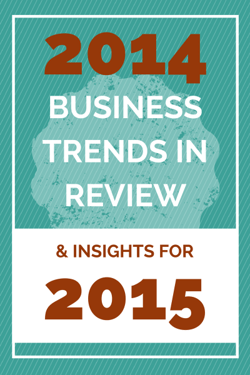1 min read
Cloud Based ERP and CRM Solutions: 5 Reasons Love is in the Air!
Why Are So Many Companies Switching to Cloud Based ERP and CRM Systems? Is it Love? When it comes to the daily interactions you have with your...
4 min read
Todd Fitzwater Thu, Jun 04, 2015
 Cloud ERP Software is a Growing Trend for Growing Businesses in 2015
Cloud ERP Software is a Growing Trend for Growing Businesses in 20150ne business trends that emerged in 2014 proves there are major effects for how growing businesses take advantage of cloud-based ERP for the year ahead. This article is based on our opinion regarding 2014’s most fascinating trends and our perception on how these developments will help growing companies save money in 2015.
A trend that was apparent in 2014 was the growth of cloud-based ERP fast-tracking the way as a viable solution for enterprise-class ERPs were utilized by small to midsized organizations. Big operations and larger organizations wouldn’t even consider integrating their systems with an SaaS platform. Now, SaaS ERPs reach through the schism. Today, more and more established and growing businesses are looking for solutions like NetSuite. We know this trend will progress into the new year which is extremely promising for the ERP vendors and solution partner providers.
Now that Saas ERP or cloud ERP software solutions are considered as a viable option for more and more growing companies Oracle is noticing a little shrinkage in their customer base. How could this be with such loyal customers? It turns out that NetSuite is increasing their market share partly by switching Oracle customer off Oracle and on to NetSuite. Over the past few years, there is a noticeable increase of Oracle customers switching over to NetSuite. Previously, Oracle customers usually stayed on with Oracle for years because they were heavily entrenched in their investment with Oracle despite the high upfront cost of the software and implementation along with the annual high maintenance and upgrade costs. This “loyalty” goes out the window when these Oracle customers realize the savings they can gain when making a switch to a more affordable system. With Oracle each improvement and upgrade is be an excruciating and costly procedure. Organizations are understanding that converting to NetSuite is less costly than continuing with Oracle, and upgrades are seamless, too. How has Oracle reacted? In a few instances, they are offering their software for free just to bring new customers in the door. Oracle also established a fusion product that claims to be cloud-based, like NetSuite, but in actuality it is a hosted platform solution. Oracle is undoubtedly struggling to quell the tide of customers converting to NetSuite. We’ll have to wait and see whether Oracle is effective in retaining its customer base over the coming year. Could we see Oracle make a cloud ERP acquisition in the future?
Remarkably, the largest single shareholder of NetSuite is Larry Ellison. Yes, the Larry Ellison who established Oracle and still maintains a large portion of that organization’s shares. And that points us to an added trend that continues to develop: strange partnerships. Legacy systems like Oracle and SAP have developed relationships with fast-growing cloud solutions, such as NetSuite, Salesforce, and Concur. Here is an example, Oracle supports both NetSuite and Salesforce as solutions for its clients. And SAP bought Concur, which works with NetSuite and Salesforce. How do you sort out all of those “friend or foe” relationships?
While NetSuite is quick to point out flaws in most of their competition, including SAP and Microsoft, its marketing materials will never include disparaging observations about Oracle. Also, NetSuite is a wanted attendee at Oracle OpenWorld and has even presented at the trade show—a comfortable affiliation for theoretical competitors. It will be compelling to view how these business partnerships and relationships play out in 2015. Purely speculation, but perchance Oracle will just purchase NetSuite outright.
Salesforce got its start as a solution for marketing, sales automation, and management support, the emphasis has obviously transitioned with added functionality as a development platform. In fact, there’s been little significant improvement to the central functionality of Salesforce. It’s crystal clear that Salesforce wants software developers to use their platform as a means of developing business applications, and we assume this trend of development support will continue in 2015. There is an thought-provoking question that keeps us curiously thinking. How long will it be before a developer uses the Salesforce platform to develop software that eclipses Salesforce’s own CRM functionality? It may not happen in 2015, but a great deal of change is anticipated a on the horizon. Change is one thing you can count on in the ERP software industry.
As the request for SaaS accelerates and as more and more business solutions become practical in the cloud, large consultancies are struggling to bring their capabilities to this space. However, they are unsuccessful to grasp that the implementation process for SaaS is definitely not the same as for an on-premise solution. These ERP consultant firms are attempting and failing—to implement SaaS in the similar way that they’ve always implemented on-premise solutions.
The lengthy process of developing a long list of specifications and requirements, presenting the specs in written documents, and then designing and implementing an ERP solution to meet those specs simply isn’t necessary with SaaS. Instead, the SaaS implementation process is much more hands-on and interactive. ERP consultants no longer need to write out elaborate documentation prior to implementation, nor do they need to charge such outrageous fees. Yes, planning and forethought are still required, but successful implementation happens through modeling the software and making changes on an interactive basis.
With SaaS or cloud based ERP implementation, project lead times will be quicker, easier, and implementation fees will be lower. If ERP consultancies truly want to compete in the SaaS space in 2015 and beyond, they must to adjust to the changing market.
Has your business been affected by any of these trends? What are you anticipating for the year ahead? If you’re ready to take your business to the cloud or SaaS model in 2015—or if you’re already there but need guidance to enhance the business value—you can rely on the expertise and experience of DSG. Learn more about the DSG difference. If you have questions about brining your business to the cloud, give our Demand Solutions Group (DSG) ERP experts a call at: 866.486.4064
Let DSG match you up with the right solution for your business, and we will help you evaluate how the cloud might make sense for you. Call us at 866.486.4064 or fill out our contact us form.
About DSG:
DSG delivers cloud accelerated business solutions based on leading ERP, CRM, and CPM applications NetSuite, Salesforce™, and Adaptive Insights. With our deep business and technology expertise and the experience gained from hundreds of successful projects, DSG is acknowledged as one of the leading cloud business solutions providers by our major business partner, NetSuite, and by cloud media and analysts such as IDC and CRN.
Since 2005, hundreds of companies—from startups to the Fortune 500—have worked with DSG and benefited from our proven Realize, Optimize and Revitalize methodologies.
The DSG experts are proud to implement tailored NetSuite, Salesforce™, and Adaptive Insights solutions that deliver value, insight and business acceleration, starting on day one.
Another version of this was posted by Todd Fitzwater on January 6, 2015 on DSG Solutions Blog: 2014 Business Trends Review: Insights 2015
Related Cloud ERP Software Articles:
Five Things to Consider for a Successful NetSuite ERP Implementation
Three Tips for Using NetSuite to Drive Sales
Why Great Plains Users Need to Move to the Cloud with NetSuite: Part 1

1 min read
Why Are So Many Companies Switching to Cloud Based ERP and CRM Systems? Is it Love? When it comes to the daily interactions you have with your...

The success of any good implementation does not rely on just good software. As ERP consultants who have implemented hundreds of cloud ERP solutions,...

The year 2015 has just started; yet business analysts have already confirmed that it will shape the future of ERP. A series of ERP trends that have...